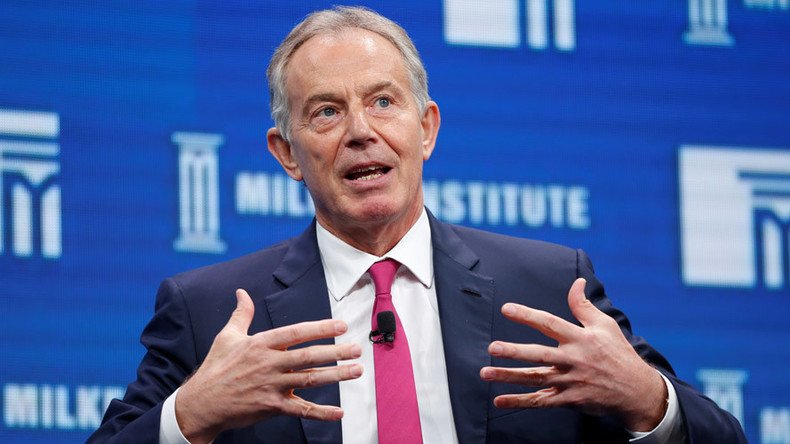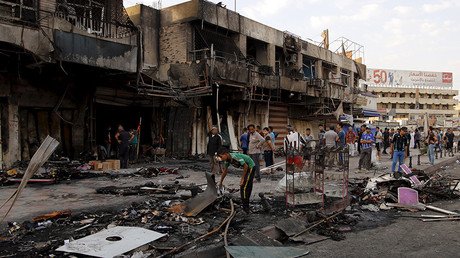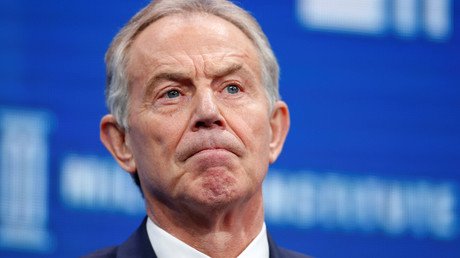Tony Blair: Western troops need to fight a ‘proper’ war with ISIS

Former UK Prime Minister Tony Blair says Islamic State (IS, formerly ISIS/ISIL) will not be defeated unless ground forces fight a “proper” war against them.
Speaking at an event in Westminster, the ex-Labour leader called for greater military involvement in the conflict, arguing if the terrorist group is not dealt with “they will come and attack us here.”
The UK is currently involved in a coalition of nations conducting airstrikes against IS in Syria and Iraq. In Libya, where the group controls the port city of Sirte, domestic forces have sought to contain its advance.
“There is no way of defeating these people without defeating them on the ground. Airstrikes are not going to defeat ISIS, they have got to be tackled on the ground,” Blair says.
The former PM, who took Britain to war in Iraq in 2003, precipitating a bloody insurgency, says such an intervention did not necessarily mean British troops doing the fighting. To defeat IS “you are going to have to go and wage a proper war against them,” he said.
The choice was not between a full-scale ground invasion force, which could govern the land after the fighting, and not making an intervention at all, he argued, as smaller-scale deployments are already making a difference.
“The armed forces of America, the UK, France, other major countries have both experience and capability so even if we are using them in support of local forces, you have just got to decide what our objective is.
“Is our objective to defeat this enemy? My answer to that is yes.”
Asked whether the legacy of Iraq meant it is more difficult for a UK leader to deploy troops overseas, Blair said: “You can describe it as a legacy or describe it as a fact that arises from the nature of the conflict.”
The Chilcot Inquiry report on the ill-fated 2003 Iraq invasion is due to be published in July, seven years after it was commissioned.
It is expected the inquiry will cast an “absolutely brutal” verdict of Blair’s involvement. It is likely he will be accused of mishandling the war and the subsequent bloody occupation of Iraq.
Blair refused to be drawn on the inquiry’s findings, but he said: “We underestimated profoundly the forces that were at work in the region and that would take advantage of the change once you topple the regime.
“That’s the lesson. The lesson is not actually complicated, the lesson is simple - it’s that.
“It’s that when you remove a dictator, out come these forces of destabilization - whether Al-Qaeda on the Sunni side or Iran and its militia on the other side.”
Blair cast doubts on Labour’s chances of winning the next election with anti-war Jeremy Corbyn at the helm, saying it was “not yet a proven concept that Corbynism can win an election.”
Blair criticized his successors anti-austerity approach for being too “black and white” and said Labour is “not in the right conversation” about the future of the UK economy.
He also issued a warning to Labour voters about the perils of leaving the EU.














